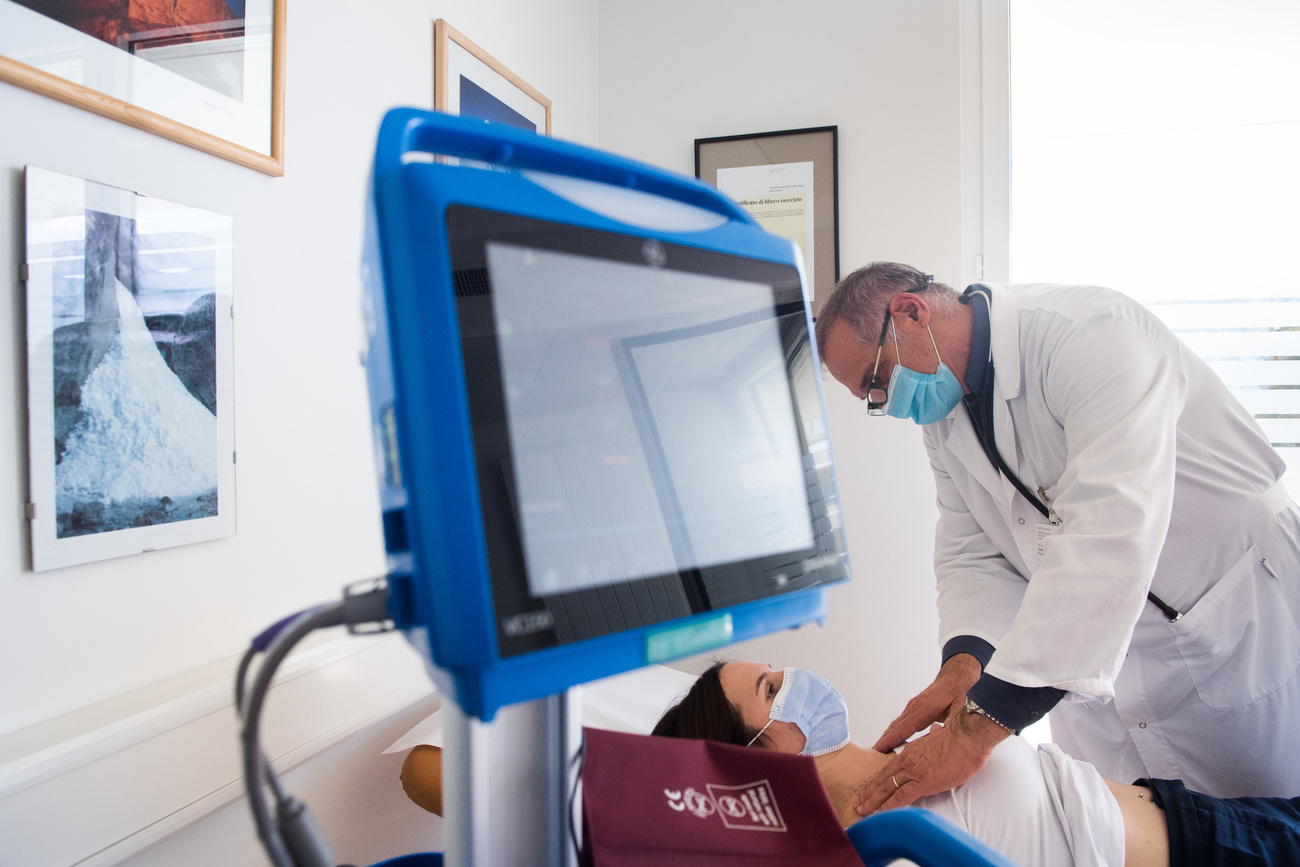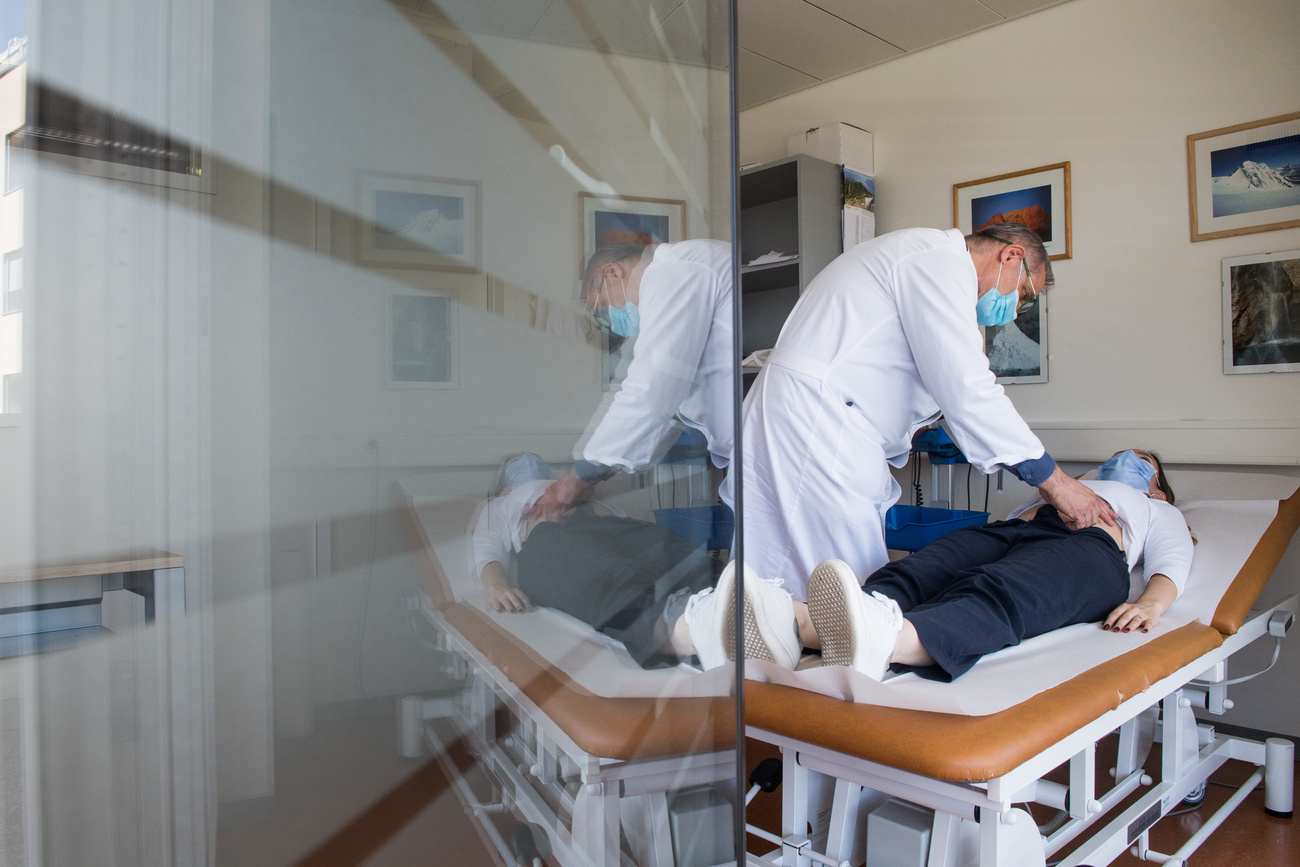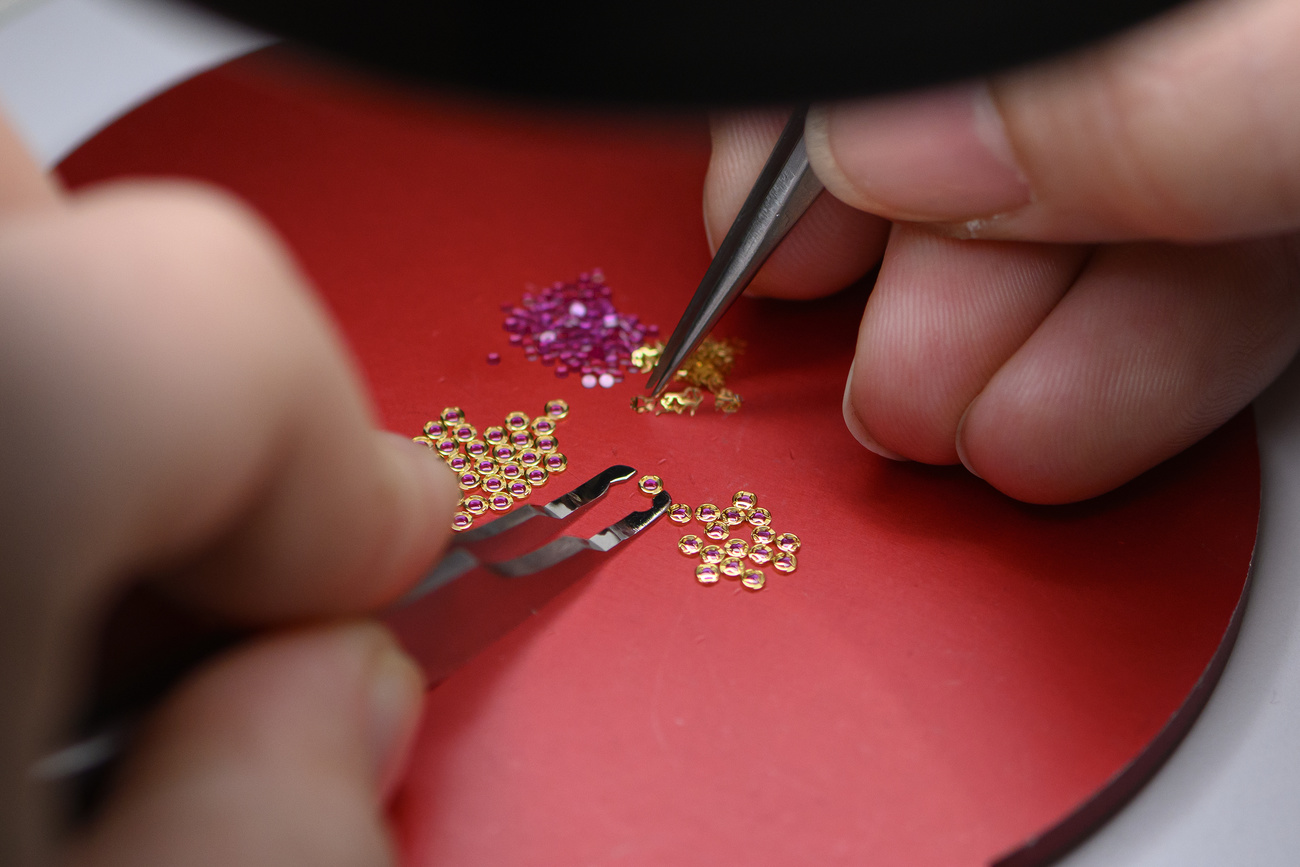Zurich researchers find protein clue in long Covid puzzle

A team of Zurich researchers has identified a specificity in the blood proteins of people with long Covid. This could offer better diagnoses and more targeted treatments.
Researchers from the University Hospital Zurich analysed more than 6,500 proteins in the blood serum of 113 people infected with Covid-19 and 39 healthy people, indicates the study published Thursday in the journal Science.
In infected people, 40 of whom developed long Covid, they re-examined the blood pattern after six and 12 months.

More
Long Covid: one in five patients still report symptoms after two years
In the serum of people with long Covid, they observed a modification of proteins linked to the so-called “complement” system. This is part of the immune system and normally helps fight infections and eliminate damaged and infected body cells.
“In patients with long Covid, the complement system does not return to the resting state as it should,” explained the leader of the study, Onur Boyman, director of the immunology clinic at the Zurich University Hospital.
Additionally, patients with long Covid had high rates of damage to different cells in the body, including red blood cells, platelets and blood vessels.
“If the complement system remains activated, it attacks healthy cells in different organs and damages or destroys them,” explained the immunologist. “With this discovery, we have found another piece of the long Covid puzzle, which also explains why this disease can cause such varied symptoms,” said Onur Boyman.
According to the immunologist, these new discoveries could not only contribute to a better understanding of the disease, but also allow researchers to detect active long-term Covid using the protein model in the blood.
However, the researchers used a complex process to discover the blood markers, which, according to the immunologist, cannot be used in daily hospital life. According to him, such a test would, however, be extremely useful, for example to distinguish long-term Covid from other diseases that cause similar symptoms.
It would also be possible to develop a treatment for long Covid based on knowledge of the role of the complement system. “There are already companies developing complement inhibitors,” emphasised Onur Boyman. These inhibit the activity of certain components of the complement system. They are used to treat certain autoimmune diseases.
Some researchers who were not involved in the study, however, caution against hasty conclusions. According to them, it is still too early to derive direct therapeutic concepts from this new knowledge, or even to immediately launch into therapeutic trials, Gabor Petzold from the University Hospital Bonn told the Science Media Center.
“There are certainly complement system inhibitors already authorised for other diseases. But further studies should be undertaken to examine the knowledge acquired here in larger groups of patients, which also reflect the different variants of long Covid,” added Petzold.

More
Explainer: should we be worried about the Covid-19 comeback?
This news story has been written and carefully fact-checked by an external editorial team. At SWI swissinfo.ch we select the most relevant news for an international audience and use automatic translation tools such as DeepL to translate it into English. Providing you with automatically translated news gives us the time to write more in-depth articles. You can find them here.
If you want to know more about how we work, have a look here, and if you have feedback on this news story please write to english@swissinfo.ch.

In compliance with the JTI standards
More: SWI swissinfo.ch certified by the Journalism Trust Initiative



















You can find an overview of ongoing debates with our journalists here . Please join us!
If you want to start a conversation about a topic raised in this article or want to report factual errors, email us at english@swissinfo.ch.